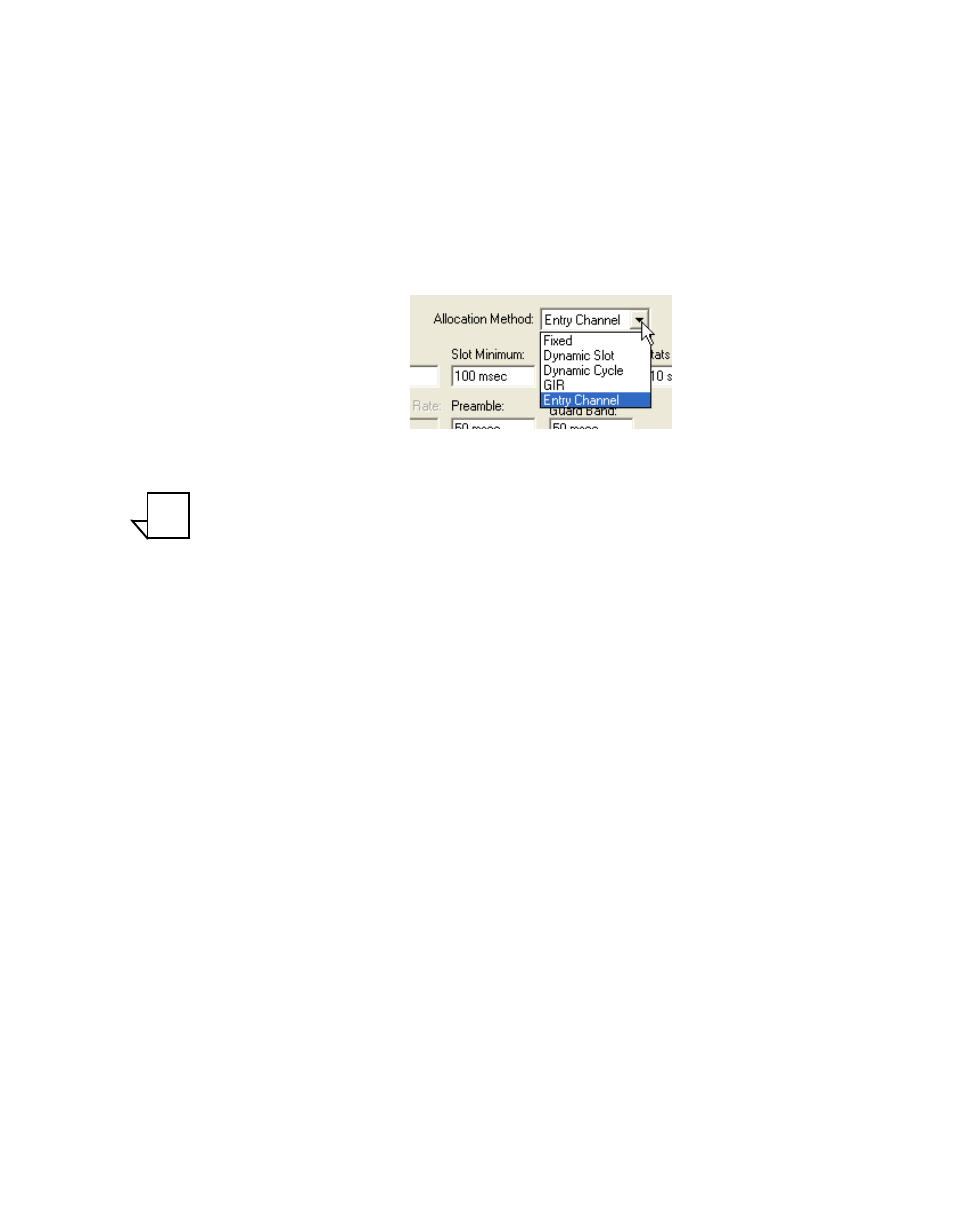Dynamic cycle, Dynamic slot, Entry channel – Comtech EF Data CDM-570/L Vipersat Parameter Editor User Manual
Page 49: Figure 2-23 bandwidth allocation method -33

Chapter
2 -
Using Parameter Editor
2-33
Vipersat
• Dynamic Cycle – A dynamic cycle allows changing the cycle time, and
corresponding latency, as loads change always providing minimum
latency for the current traffic load.
• GIR – Guaranteed Information Rate allows assigning a guaranteed data
rate to a channel.
• Entry Channel – Entry channel mode provides an on-demand channel for
applications such as a mobile remotes.
Figure 2-23 Bandwidth Allocation Method
Note: If the Hub STDMA mode is either GIR or Entry Channel, normal load
switching is automatically disabled. In GIR mode, the Remote is
switched to SCPC as soon as the GIR threshold is reached, if there is a
switch rate defined. In Entry Channel mode, the Remote is switched to
SCPC as soon as the Hub receives the first transmission from the
Remote.
Dynamic Cycle
In the Dynamic Cycle bandwidth allocation method, available bandwidth is
allocated to remotes proportionally based on their current bandwidth needs. The
bandwidth requirements are determined by the number of bytes in queue for
each remote divided by the total number of bytes in queue for all remotes to
determine the percentage of bandwidth to allocate for each remote.
Dynamic Slot
In the Dynamic Slot mode, the slot size for each remote is computed based on
the time (at the current data rate) needed to transmit all the Bytes in Queue. If
the result is less than the minimum slot size or more than the maximum slot
size, the slot is adjusted accordingly.
Entry Channel
The Entry Channel Mode (ECM) is the same as Dynamic Cycle mode, except
that as soon as the Hub receives an STDMA ACK, it initiates a switch to SCPC
mode based on the policy set for that remote.
NOTE
